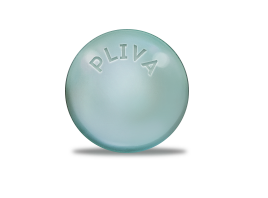we accept  Oxytrol
Oxytrol

Oxytrol is used to relieve symptoms associated with an overactive bladder, such as urinary urgency, urinary frequency, leakage, or urge incontinence.
- Availability: In Stock (87 packs)
- Active Ingredient: oxybutynin
- Analogs of Oxytrol
- Ditropan
| Package | Per Pill | Savings | Per Pack | Order |
|---|---|---|---|---|
| 30 pills | $60.28 | |||
| 60 pills | $1.69 | $18.99 | $120.56 $101.57 | |
| 90 pills | $1.59 | $37.98 | $180.84 $142.86 |
Oxytrol (Oxybutynin)
General information
Oxytrol belongs to the class of drugs known as antispasmodics. It reduces muscle spasms of the bladder and urinary tract. The drug improves the inability to control urination (incontinence), increased nighttime urination. It works by blocking specific receptors (called muscarinic receptors) in the bladder, helping to relax the muscles of the bladder.
Directions
Precautions
Before taking Oxytrol you should talk with your doctor if you have liver disease, liver failure, cirrhosis, hepatitis, kidney disease, kidney failure, glaucoma, digestive problems, gastroesophageal reflux disease, difficulty passing urine, enlarged prostate (benign prostatic hyperplasia), any allergies. Let your doctor know if you are pregnant or breastfeeding. This drug may make you dizzy or drowsy or cause blurred vision. Do not drive or perform tasks that require alertness. Limit alcoholic beverages. It can increase some of the side effects. Avoid becoming overheated or dehydrated.
Contraindications
You should not take Oxytrol if you are allergic to oxybutynin or any of the ingredients of the medication, or if you have acute blood loss, loss of tone of intestinal muscles, intestinal obstruction, megacolon, myasthenia gravis, obstructive uropathy, partial or complete obstruction of the gastrointestinal tract, uncontrolled narrow-angle glaucoma, urinary retention or obstruction. It should not be used by a child younger than 5 years of age.
Possible side effect
Get emergency medical help if you have skin redness, itching, dry mouth, drowsiness, dizziness, blurred vision, headache, weakness, nausea, constipation, sleep problems (insomnia), dry eyes, stomach pain, uneven heart rate, swelling of your face, lips, tongue, difficulty breathing, hives. If you notice other effects not listed above, contact your doctor.
Drug interactions
Tell your doctor about all other medications you use, especially: antibiotics (elithromycin, clarithromycin, erythromycin), antifungal medications (fluconazole, ketoconazole, itraconazole), acetylcholinesterase inhibitor medications (rivastigmine, donepezil, tacrine), anticholinergics (atropine, clidinium, haloperidol, tolterodine), pramlintide. Interaction between two medications does not always mean that you must stop taking one of them. Tell your doctor or prescriber about all prescription, over-the-counter, and herbal medications you are taking.
Missed dose
Take the missed dose as soon as possible. Skip the missed dose if it is time for your next scheduled dose. Don't take extra medicine to make up the missed dose.
Overdose
If you think you have overdosed the medicine seek emergency medical help at once. The overdose symptoms are unusual excitement, fever, vomiting, agitation, fast or irregular heartbeat.
Storage
Store the medicine at room temperature between 68-77 degrees F (20-25 degrees C) away from light, heat and moisture. Do not store the drugs in the bathroom. Keep all drugs away from reach of children and pets.
Note
The information presented at the site has a general character. Note please this information cannot be used for self-treatment and self diagnosis. You should consult with your doctor or health care adviser regarding any specific instructions of your condition. The information is reliable, but we concede it could contain mistakes. We are not responsible for any direct, indirect, special or other damage caused by use of this information on the site and also for consequences of self-treatment.
